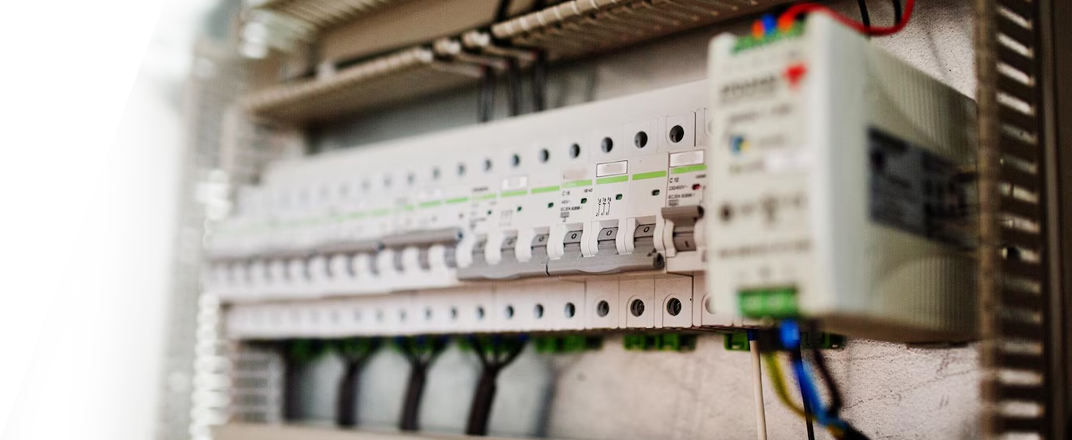E & E Engineering


E & E Engineering


The Department of Electrical and Electronics Engineering (EEE) was established in the year 2006 and offers B. Tech., M.Tech and Ph.D. programmes. The department at JAIN (Deemed-to-be University) one of the top engineering colleges in Bangalore, has faculty well-versed in academic and industrial fields accompanied by experienced technical supporting staff. The programme has a highly flexible structure with a blend of industry and research-oriented courses. A student can pursue different major and minor streams in the domains of electric vehicle design, design and development of electrical machines, smart grids, microgrid technologies, renewable energy, transmission and distribution, energy management, and electrical material science.
The EEE program at JAIN (Deemed-to-be University) is unique in its curriculum with a blend of core electrical courses besides elective subjects of recent trends and techniques that enhance the students with good employability opportunities in various domains globally.
Moreover, power and energy requirements, automation and artificial intelligence plays a crucial role in an Electrical Engineer’s career. Therefore, in addition to the specialization, the students are also allowed to choose (CBCS) from the following emerging areas of career and research as Departmental Elective:
B. Tech course in Electrical and Electronics Engineering is an Unique, multi-faceted discipline and the universal set of all other circuit branches that offers exponential growth with widest spectrum of career choices into various fields namely the Power and Energy Sector, Control Engineering, Embedded technologies, Instrumentation, Renewable Energy Sector including recent advancements in Electric Vehicles, Charging stations, Energy Storage Systems and advanced electrical machinery. Electrical engineers are into the design and testing of e-vehicles, wireless power transmission, electrical manufacturing, conventional and renewable power generation, computers and communication system with top salary packages.
The students will experience the ambience and general infrastructure of an institution with an A++ grade
The students will experience the availability of teachers, Qualified only from reputed institutions across the country with good technical skills and parental approach towards the students.
The students can experience the innovative classroom teaching and the experiential learning followed in the EEE department by the subject handling faculty to make the students understand each and every concept of electrical engineering.
The students can experience the state of art infrastructure, in terms of laboratory, classrooms and other student related facilities on par with the other institutions of excellence in this country.
Various skill development courses throughout the curriculum are available, with different levels of certifications.
Industrial Internship and project-based training is provided to make the students industry ready.
The students of B.Tech in Electrical and Electronics Engineering will be trained to provide acceptable solutions to complex electrical engineering problems in major core industries by application of modern and appropriate techniques that are taught as a part of enriched curriculum through National Educational Policy. Transfer of skill is guaranteed hence job opportunity is guaranteed to all the enrolled in this program
The students will be able to apply the knowledge to improve and control the conventional and non-conventional energy systems for specific applications ethically and eco friendly
The graduates will have the following designations in all related fields as mentioned
A student who has passed 10+2 examination (level 4.0) with Physics and Mathematics as mandatory courses, along with one of the following: Chemistry / Computer Science / Electronics / Information Technology / Biology / Informatics Practices / Biotechnology / Technical Vocational subject / Agriculture / Engineering Graphics / Business Studies / Entrepreneurship, shall be eligible for admission to B.Tech. programmes. Obtained at least 45% marks (40% marks in case of candidates belonging to reserved category) in the above subjects taken together.
OR
Passed D.Voc. Stream in the same or allied sector.
(The University will offer bridge courses in Physics and Mathematics, along with Chemistry / Computer Science / Electronics / Information Technology / Biology / Informatics Practices / Biotechnology / Technical Vocational subject / Agriculture / Engineering Graphics / Business Studies / Entrepreneurship, for the students coming from diverse backgrounds to prepare level playing field and desired learning outcomes of the programme).
RESERVATION CATEGORY: The University follows the percentage of Reservation for SC/ST & OBC Category as prescribed by the Central Government.
Passed a minimum three-year / two-year (Lateral Entry) Diploma examination (Level 4.5) with at least 45% marks (40% marks in case of candidates belonging to reserved category) in any branch of Engineering and Technology.
OR
Passed B.Sc. Degree from a recognized University as defined by UGC, with at least 45% marks (40% marks in case of candidates belonging to reserved category) and passed 10+2 examination with Mathematics as a subject.
OR
Passed B.Voc/3-year D.Voc. Stream in the same or allied sector.
(The University will offer suitable bridge courses such as Mathematics, Physics, Engineering drawing, etc., for the students coming from diverse backgrounds to achieve desired learning outcomes of the programme)
Bachelor of Technology (Lateral Entry to Third Year): UG Diploma in Engg (Level 5.0)
Bachelor of Technology (Lateral Entry to Final Year): B.Voc. in relevant discipline (Level 5.5)
Enhance your B.Tech experience with the option to pursue a Minor Degree from IIITH and gain unique opportunities for academic and professional growth!
Key Highlights of the UG Minor Degree Program from IIITH:
Certificate Issuance:
Minor Degree Recognition:
Research Internships:
Note:
The graduates of B.Tech in Electrical and Electronics Engineering will have the opportunity to work in various Government sectors like
After completing a B.Tech in Electrical and Electronics Engineering, further study options include